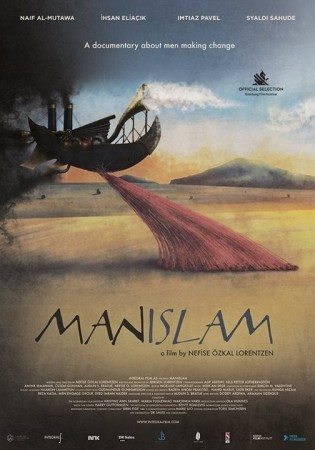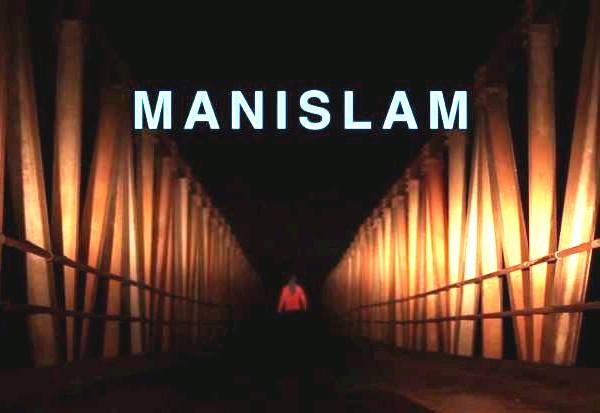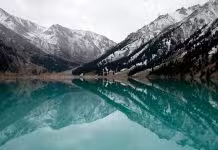In secularist countries, where there is no organic tie between religion and the government, the gender emancipation is already taken for granted. However in the islamic world, which is almost totally anti-secular, we often encounter that women and homosexuals suffer.
The majority of the history is written by men and therefore probably tells more about the men themselves. Then it is no surprise that it is not called “her story”, but “his story”. The religious books are also address men. Beside some exceptions the Holly Books are translated and interpreted again by men. That does not mean that women are excluded in religion, but they are obviously the second gender.
In Islamic countries, often women and homosexuals have limited freedom and added hardship in life. Men tend to limit the freedom of others and make them ‘suffer’. A possible reason is that in such countries the patriarchal system is widespread; unlike girls, boys are thought to be strong, dominant, decision makers and beloved – just because they are men. The men of this family system are obliged to protect the honor of the family and chastity of the women. As a result they become cruel individuals with big ego. The patriarchal system that gives neither happiness nor freedom to both gender, prevails for many centuries. What is weird, is that this mentality is supported by Muslim women as well.
Well, are the men of Islamic countries really happy? Do they feel free? How do they carry that burden, how do they manage everything they are expected to be? And what if they fail? Are they really content when they murder their sisters or wives, just because she disobeyed? Does punishing women and homosexuals give them pleasure?
Nefise Özkal Lorentzen seeks answers to those questions in the last film episode of her Islam Trilogy. In her first film, Gender Me (2008), we met men who want to to be both homosexual and Muslim. In the second episode, A Balloon for Allah (2011), she narrated why women in Islam are unhappy. In the final episode Manislam (2014), the leading roles belong to men in Islam. The film is sponsored by the Norwegian National Broadcasting TV (NRK).
Four brave Muslim men

This documentary is a brief story of how they see Islam, what conflicts they face while they attempt to change the dominant culture in their countries and how they disseminate their messages. According to the film director, these four men who try to shape a democratic and united Islam, moving toward their own freedom. Nefise Özkal Lorentzen’s documentaries are slightly different then others, as it is enriched by animation and fairytale narration. What is also special about her is that she takes part in the movies as a mother and woman, all while being the director.
In Manislam, Özkal Lorentzen makes us sympathies and feel with the men in their pain, rather than barely informing or illuminating the issues. The protagonists share their very intimate memories, other times they confess to Özkal Lorentzen’s camera. İhsan Eliaçik is well known by Gezi Riot supporters in Turkey. He leads an activist group in Turkey called Anti-Capitalist Muslims. He is an important figure for the director, being from the same culture; he gives her hope to get real Islam back from the fundamentalists in Turkey. Eliaçik is a Muslim theologian and thinks that religion should be anchored in daily life and focus on injustices such as hunger or environmental issues. According to him, the problems are not really rooted in Islam but wrong interpretations and the dominant patriarchal system impose the passion for power and possession on men.
Bangledeshi Imtiaz Pavel created a quiz board game which he plays with the village kids to make them understand that men and women are equal from an early age. In the Muslim villages Pavel visited, girls play football in shorts, while boys cheer for them. Naif Al-Mutawa is psychologist from Kuwait and the creator of The 99, the first superhero cartoon characters in the Islamic world. His stories depict the adventures of 99 superheros, each with one of the 99 names of Allah. He believes in the power of narration and noticed that there was no superhero in the Islamic world, unlike Superman or Batman in the Christian world.
Syaldi Sehude and four other young men put on miniskirts and walked in the streets of Jakarta chanting slogans against rape. This small event had a nationwide effect and became a headline in the Jakarta Post. They believe that in order to emancipate women, first men should be freed. They should be allowed to be emotional and cry like women do.
Time for an islamic Renaissance?
What are the bases taken into consideration in the interpretations of the holy book? What is the actual problem: the book or the interpretations? Is it really Quaran that makes people suffer? The book that was brought to the Prophet in Kureysh language and written in Arabic, another language known for being ambiguous?
Besides pointing out men’s pain, Nefise Özkal Lorentzen’s film also unveils an important fact of today’s world that should be considered: people from Muslim countries are judged according to their dominant religion, but not on their individual personalities or talents. The bad reputation of Islam leads to prejudices and discrimination.
Christianity experienced the Renaissance in the 16th century and this reform of the religion resulted in a new era in history. Islam has not yet had a reform. Al-Mutawa, Eliaçık, Pavel and Sehude could be considered as pioneers of an Islamic Reform. Manislam shows us that contributions to that reform are needed rather quickly. The Islam Triology of Lorentzen should be shown in every country to help people to realise that Islam, as we experience it today, is not the real version. Furthermore, stereotyping Muslims will not solve any of the problem in the world, as the Islamic reform needs to be undertaken by real Muslims.
Who is Nefise Ozkal Lorentzen?
Nefise Özkal Lorentzen (b. 1964) is a Turkish-Norwegian film director. She holds a Bachelors degree in political science from the Bosphorous University in Istanbul, Turkey, and a Masters degree in media and communication from the University of Oslo. She has written and directed numerous documentary films, often touching upon controversial themes such as gay Muslims, war and racial discrimination. In 2008 she also made her debut in fiction, writing and directing the five-episode drama TV-series The Young Detectives. In addition to making films Özkal Lorentzen has also written several books.




